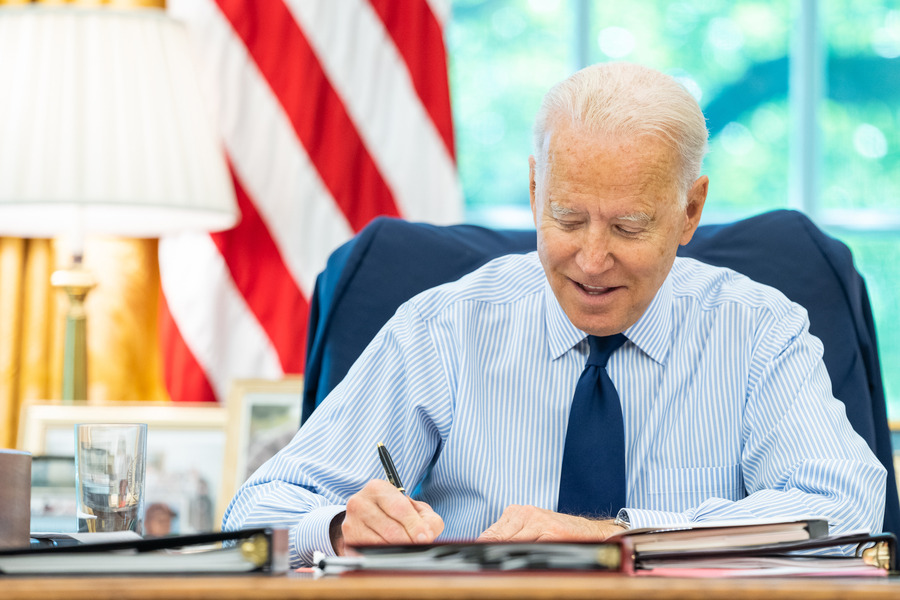Trust in Institutions and What it Means for the Russia Investigation: Take II
Last summer, I wrote about an NBC News/WSJ poll that found barely half of Americans believe that the Russian government attempted to influence the 2016 election.
Published by The Lawfare Institute
in Cooperation With

Last summer, I wrote about an NBC News/WSJ poll that found barely half of Americans believe that the Russian government attempted to influence the 2016 election. More than a third (36 percent) of Americans—including 65 percent of Republicans—outright rejected the conclusion of the intelligence community, which, I argued, reflected a broader suspicion of democratic institutions. A new NPR/PBS NewsHour/Marist poll, however, complicates the picture. Although the Russia investigation elicits a deeply partisan response, including substantial suspicion among Republicans, public confidence in the intelligence community is quite strong—at least for now.
According to the NPR/PBS/Marist poll, 57 percent of Americans express “a great deal” or “quite a lot of” confidence in the FBI, including majorities of Democrats (63 percent), Republicans (54 percent) and Independents (55 percent). This level of confidence in the Bureau appears especially strong in contrast to confidence in other key democratic institutions: most Americans say they have “no confidence” in Congress (61 percent), the President (54 percent), the Democratic party (60 percent), or the Republican party (67 percent). Strong confidence in the FBI suggests that there is—at least for the time being—considerable daylight between the Republican party as a whole and the handful of congressional Republicans who for months have alleged that the law enforcement agency is hopelessly compromised by political bias.
An ongoing Lawfare polling project finds that Americans consistently express a high degree of confidence in the intelligence community. 62 percent of Americans express at least some confidence in the intelligence community to protect national security, a figure that outpaces the share of Americans who say the same about the President (48.2 percent) and Congress (49.5 percent). To the extent that mistrust of democratic institutions animates the American electorate—as pollster Guy Molyneux and others have argued—the intelligence community appears to be tainted to a lesser degree than other political institutions.
With these numbers in mind, perhaps it should not be a surprise that increasing numbers of Americans believe that Russia tried to influence the 2016 election. In June 2017, as I noted above, an NBC News/Wall Street Journal poll found that just 52 percent of Americans (78 percent of Democrats and just 26 percent of Republicans) trusted the intelligence community’s conclusions on Russian election interference. A recent Quinnipiac poll, however, found that a strong majority of Americans (68 percent) now believe that the Kremlin sought to meddle in the election—a 16-point increase from the NBC/WSJ poll. From June 2017 to January 2018, the share of Republicans who agree that Russia tried to influence the 2016 election increased by seventeen points, from 26 to 43 percent. And yet, the share of Republicans who believe the Russians attempted to meddle is outpaced by the share of those who do not believe this (49 percent).
So politics still plays a role. And while more Americans now believe the evidence of Russian interference, partisan sentiment is remains acute on matters related to Special Counsel Robert Mueller's investigation into possible coordination between the Trump campaign and the Kremlin. The NPR/PBS/Marist poll finds that just as many Americans have a favorable view of the Special Counsel as unfavorable (29 percent), while a sizable 42 percent of Americans say they have not heard of Mueller or are unsure of their opinion of him. Of those who have an opinion, roughly the same number of Republicans have an unfavorable view of the Mueller investigation (40 percent) as the share of Democrats who have a favorable view (49 percent).
Asked about the Russia investigation, 48 percent of Americans (72 percent of Democrats, 46 percent of Independents, and just 26 percent of Republicans) say it is fair. Once again, a substantial share (23 percent) of Americans say they are are unsure or do not know about about the fairness of the special counsel’s investigation, including nearly a fifth of Democrats (18 percent) and about one quarter of Republicans (24 percent) and Independents (23 percent).
The credibility of Robert Mueller's conclusions related to the relationship between the Trump Campaign and the Russians may depend in part on those whose opinion of the special counsel and of the investigation has yet to solidify. (It’s worth noting that both the NPR/PBS/Marist poll and the Lawfare survey were fielded before news broke of House Intelligence Committee Chairman Devin Nunes’s secret four-page memo alleging surveillance abuses linked to the Russia investigation, which has since become a matter of fierce partisan contention.) Time will tell whether these uncertain Americans will be swayed by attacks on federal law enforcement from both the White House and Congress.





